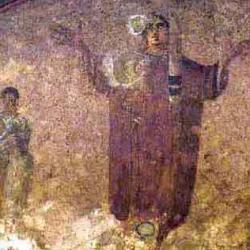“There is a subtle intrigue going on between the generations,” writes Otto Kroesen in Planetary Responsibilities (120). “It is an intrigue of separating from, and inheriting, and convincing, and letting go of each other.” The recurring question is “whether only one generation can be the owner of the truth and put its stamp on the next generation. Or can the truth take a different shape from generation to generation to such an extent that it is both inherited and renewed, because the next generation also has a say in it?” (120-1).
The present generation cannot truly love the future generation if it “puts the next generation into the straightjacket of its own truths.” A heritage must be passed on, but it can be passed only only if it anticipates a future that is different from the past.
The receiving new generation has to inherit in faith, rethink the truth in love, and realize the truth of the past in a new way (hope). The present generation must also act in faith, hope, and love: “These are the three human qualities that make it possible, that allow the spiritual outlook of one time to be translated into another time, so that it is allowed to go through different shapes and phases. The resent generation is always inclined to deliver ready products to the next generation. All the insights that somebody has acquired in a difficult process of trial and error are put together conveniently and systematically in a book. And the present generation of students is expected to learn it. This is the way it works!” (121)_.
But it doesn’t work that way. Instead, “Faith in the achievements of generations passed, being changed by love in the present, passing on this changed heritage hopefully to the future” (121). And this requires the present generation to consider whether there might be elements of its heritage that, however hard-won, might need to be given up. Each needs to ask the question, “What is the next generation allowed to forget from all the heritage that is so dear to me?” And the recipients must ask, “What should I, despite all my thirst for change and renewal, absolutely take on and inherit from the former generation, because it is indispensable, because it is essential to the quality of life?” (121).











